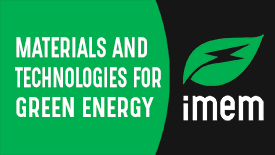The scientific evidence of global warming is undeniable
Earth's climate has changed throughout its long history. There have been numerous natural cycles of advancement and withdrawal of the ice, with the abrupt end of the last ice age, about 11’700 years ago, which marks the beginning of the current climatic era and human civilization. Most of these climate changes are attributed to very small variations in Earth's orbit, changing the amount of solar energy that our planet receives. The current warming trend is of particular importance because most of it is extremely linked to human activity and is proceeding at an unprecedented rate. The continuous increase in the levels of carbon dioxide and other greenhouse gases, due to their ability to interact with infrared radiation, is the main cause of the planet's overheating. Research in this sector requires a great effort to counteract this trend and this research group stands with ambition and competence in the direction of the study and realization of materials and technologies for the production of renewable energy, in a sustainable way and with the least greenhouse gas emission possible.
Objectives
- "Blue-sky" research: to contribute to high-level scientific objectives in the "Materials and Technologies for Energy" sector, in synergy with the reference scientific communities.
- Industrial impact: to participate and, whenever possible, to promote industrial research projects on a local, regional, national and European scale in the sectors of our competence (PV, Energy Harvesting/Storage, Solid State Refrigeration).
- Socio-economic impact: enhancing our skills within the multi-sectoral and multi-disciplinary "Mission"of Horizon Europe and of the national and regional strategic projects.
Staff and instruments are dedicated to the study and development of 3 main themes: photovoltaics, energy storage/harvesting and magnetic refrigeration. Within each theme, researchers and technologists dedicate themselves to the study of new materials created at IMEM institute with a long-term outlook. Indeed, over the years of experience gained in the sector, it was possible to completely develop paths going from basic research to the realization of devices and prototypes. The solid scientific and technological bases acquired by the AdR allow to conceive and to plan various research paths applied in 2 main Workplans. The first (WP1) is dedicated to sector projects with a long-term vision of 5 years, addressed to strategic sectors at national and European level. Horizon Europe (pillar 1 - Open Science, 2 - Global Challenges and Industrial Competitiveness and 3 - Open Innovation) and our mission of technological and sustainable innovation are the fundamental guidelines. The second workplan (WP2) is inspired by the Horizon Europe guidelines on climate change and Smart Cities for the development of large-scale multidisciplinary projects. The further development of the results achieved in WP1 are applied to the industrial sector to develop prototypes and industrial products by following the scalability process, in collaboration with the interested partners.








